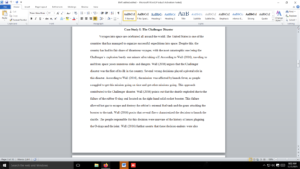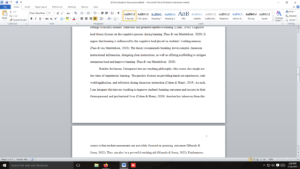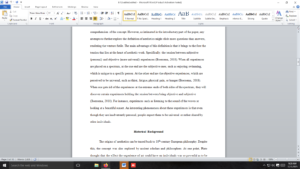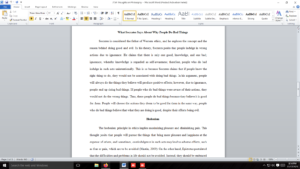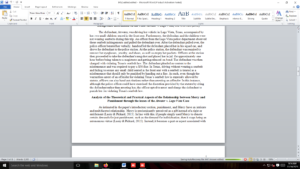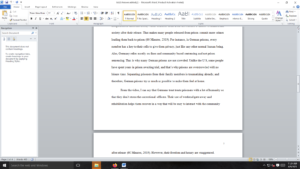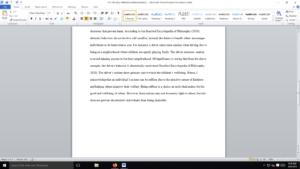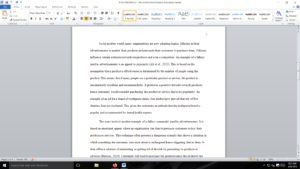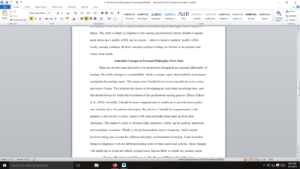Sartre on our Relationship with Others
1. Sartrecharacterizesourrelationship with the Other as, in part, an attempt to achievesomethingimpossible. Doyouagree with Sartre’s account? Why or why not?
5. If Sartre is correct about the formal character of our fundamental project, is Kierkegaardian despair unavoidable no matter what—that is, whether God does or does not exist? Is Sartre in fact correct?
Requirements: 1500-2000
i will be attaching a sample draft of what the additional 2 page handout should consist of — its like a detailed outline. Also will attach my notes from class.
work on this:
Answer preview
Due to this, people will feel the need to partly objectify others and vice versa. This is the phenomenon Sartre alludes to when arguing that being-for-others is characterized by conflict; that is, people are always in a subject-object relationship with the Other (Stevens, 2008). Even though Sartre canvasses human relationships in negative terms, people desire others’ presence, especially the objectification associated with their presence. From the discussion above, one can deduce that the presence of the Other is vital, considering people cannot discover their identity, which can be very unsatisfying. However, the presence of other people gives individuals a foundation to learn and anchor their identity (Stevens, 2008). Essentially what this means is that people can use the relationships they have with others to discover the identity they do not have and cannot provide to themselves. Other people’s existence serves as the foundation for individuals’ being. In a person’s journey towards self-discovery,
[1710 Words]
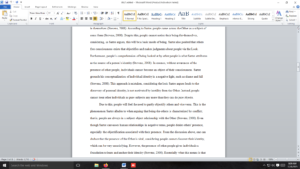
Sartre on our Relationship with Others

